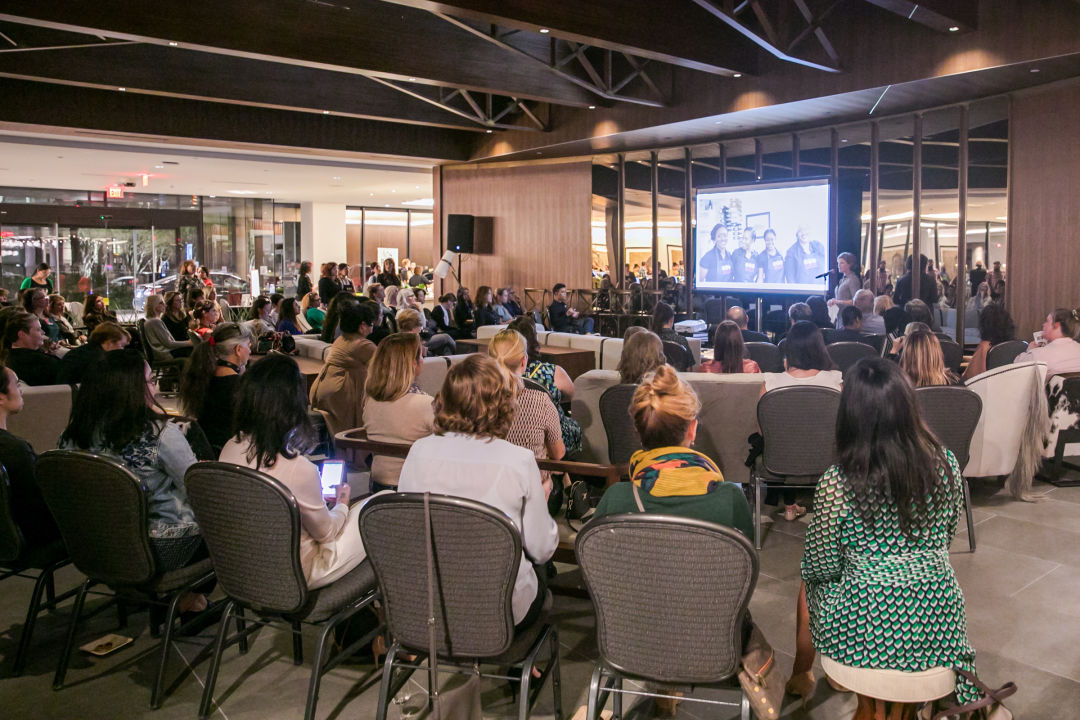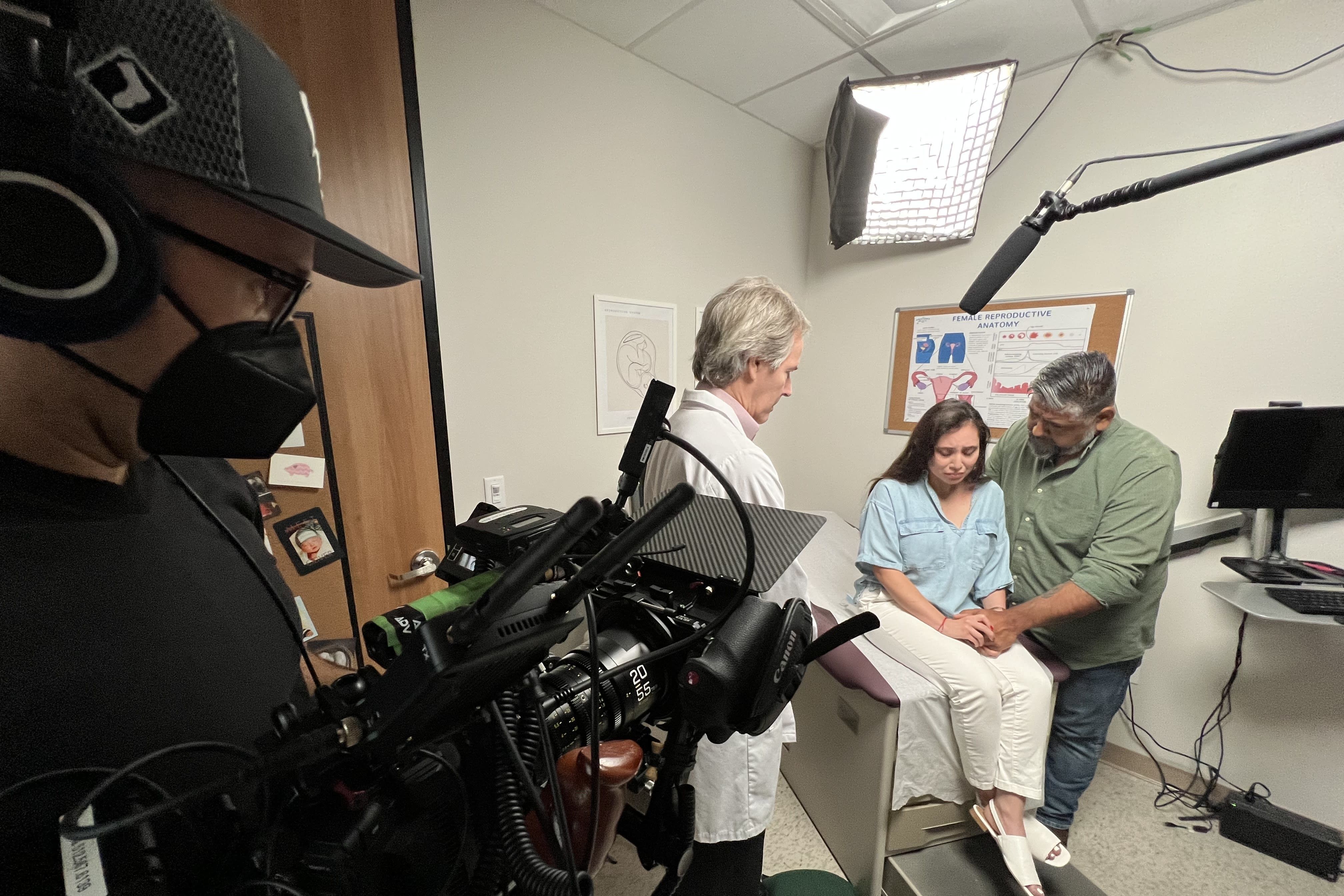Women Discuss Restaurant Industry Challenges at Documentary Screening

The documentary A Fine Line screens at C. Baldwin.
Image: Emily Jaschke
Some of the women at the vanguard of conversations about the changing landscape of popular food culture contributed to a wide-ranging panel discussion last week about the present and future of the culinary industry.
The dialogue, hosted at new downtown hotel C. Baldwin, came on the heels of the screening of A Fine Line, a documentary that details how the restaurant industry has remained staunchly male-dominated and the effects of this system on the women working within it.
The event, hosted by women’s health advocacy organization I’ll Have What She’s Having, covered a wide variety of topics, from paid family leave to venture capital funding to the philosophy of the American economic model. It showed that while there’s progress being made in lifting women’s voices in the professional kitchen, there’s plenty of work still to do.
For example, Elizabeth Gregory, a professor and researcher at the University of Houston Institute for Research on Women and Sexuality, said the very structure of a restaurant industry workday unfairly affects women.
“During working hours, between the time a child is born and the time it's 18, it is not in school 65 percent of the time,” Gregory said. “You can see how little support our current infrastructure has for parents. Policy changes, like paid family leave, are one solution, but also what about school/work synchrony? What about giving all children access to an after-school program that they don’t have to pay for? These kinds of changes only happen when you have someone in office who has this experience, so electing more women is key so that we can get paid family leave, better education, and more access to childcare.”
But the changes that need to be made aren’t simply political. Anita Jaisinghani, owner and executive chef at Pondicheri and, previously, a microbiologist, said she evolved her thinking about things like maternity leave after becoming an employer. According to Jaisinghani, she once lost an employee when she let her take maternity leave but didn’t pay for time missed.
“I was like, ‘OK, go on maternity leave and then come back and I’ll pay you for the maternity leave.’ So, she came back,” she said. “I think we all want to support women to have children, and I know it’s an important time to leave.”
TaeMi Lee, chief financial officer of restaurant investment company NextSeed, spoke about imbalance regarding opportunities for women to find funding for their own food and beverage businesses. She said that $1 of every $23 in the lending community goes to women, and only 2 percent of total investment goes to solely women-founded companies.
“We’re talking billions of dollars, so the stats are really terrible,” Lee said. “At NextSeed, about 30 percent of investments go to women, and to be quite frank, we’ve done some initiatives for women, but we don’t stress too much about it, because at the end of the day it’s who deserves the money—we don’t care if you’re a man or a woman. With access to private capital now being open to everyone, that’s changed the game.”
Other panelists included Tracy Vaught, co-owner of H-Town Restaurant Group; and Joanna James, who wrote, directed, produced, and edited A Fine Line. Radio host Dayna Steele moderated the discussion.




